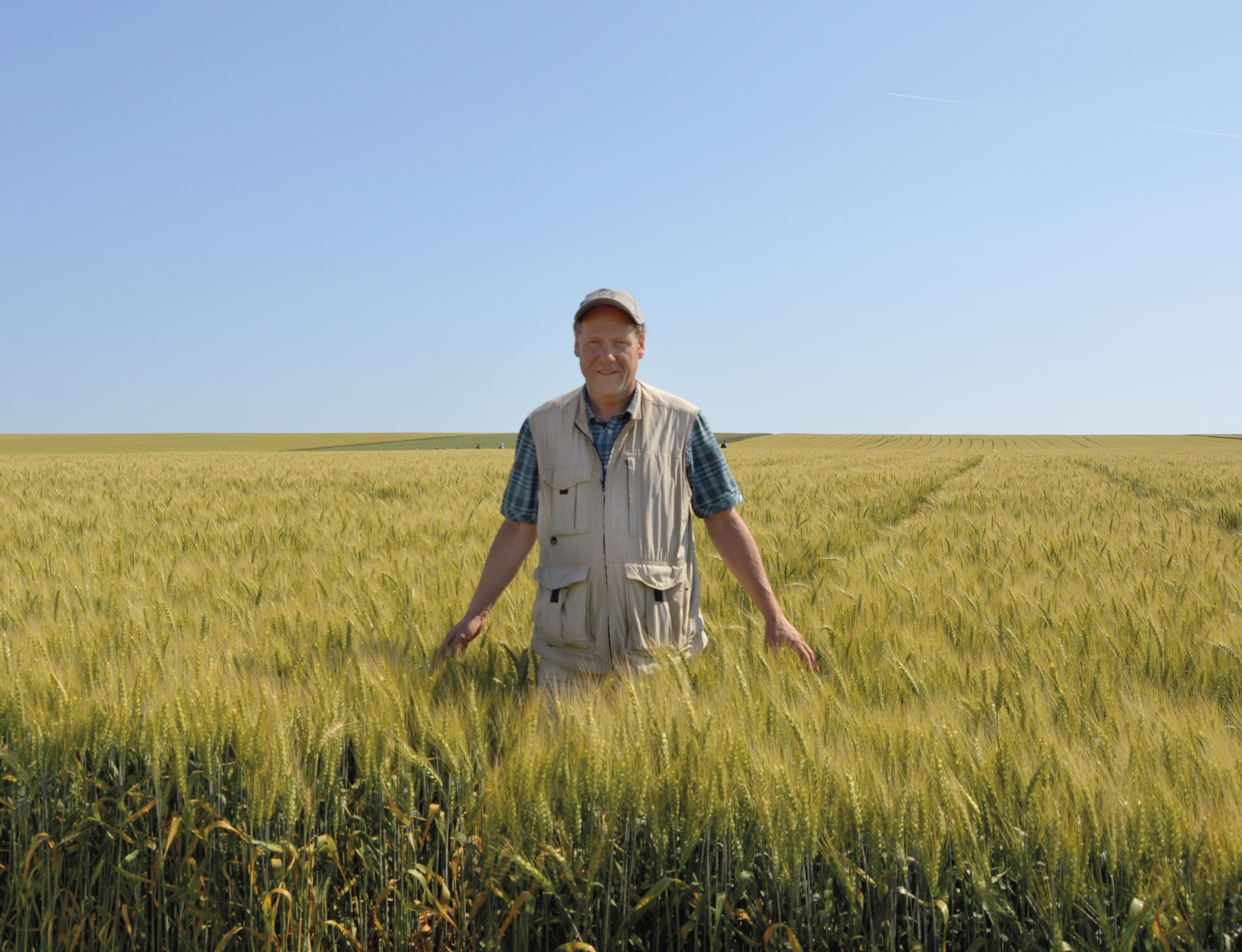Foreword EkoNiva News Edition No. 77
30 March 2023 News from the Company

Stefan Dürr: a breakthrough in seed breeding requires skilled staff, cutting‑edge machinery and investments.
EkoNiva has been engaged in seed production since the mid‑90s.
Together with the State Duma, the Federation Council and the professional community, the company took part in drafting Russia’s first law On Seed Production. At that time, it was a real breakthrough for the domestic seed industry. The law was effective until the end of 2021.
In 1998, EkoNiva started importing the best plant genetics from Europe: first, potatoes and lawn grasses, then wheat, barley and peas. As soon as the company purchased its own farms, it started seed multiplication. At the same time, EkoNiva was developing cooperation with the most advanced domestic and international seed breeding institutions. Currently, the company works with 32 breeding centres in Russia and abroad. EkoNiva’s subsidiary in Kursk oblast, OOO ‘Zashchitnoye’, is now one of the top seed breeders in the country. In 2015, it opened its own modern seed breeding centre.
Within 25 years of operation, EkoNiva has become the largest producer of field crop seeds in Russia. The company’s portfolio includes 65 varieties of 15 crops. Annual certified seed sales have reached 80,000 tonnes. Five winter wheat varieties and three soybean varieties have been listed in the State Register. The company is working on new varieties of maize, spring wheat, spring fodder barley, chick peas and lentils.
The Russian seed industry is performing well. Domestic breeders have patented a number of good winter wheat varieties and are working on other important crops. Plant breeding is becoming increasingly important, especially now when it is critical to ensure self‑sufficiency in essential crops. Specialised companies such as Shchelkovo‑Agrokhim (an operation controlled by Krasnodar Agricultural Research Institute) are making a considerable contribution into the development of the Russian seed production.
Unfortunately, not many people dare to engage in seed breeding today. High costs, limited availability of plant breeding and field research machinery and a long payback period make the industry unattractive for business. Plant breeding machinery and equipment are not produced in Russia at the moment, although the demand is quite high. In joint effort with a foreign partner and the Federal Scientific Centre (VIM), EkoNiva is working on a pilot project involving local assembly of a plot harvester using parts produced in Russia and a Belarusian engine (MMZ). However, serial production of such machines requires targeted financing from the government. Lack of skilled specialists is another challenge for the industry. The profession of a seed breeder is not particularly popular with young people today. It is important to look for talented students and invite them for internship to the leading plant breeding companies to give them an insight into modern practices implemented in Russia. They will be more willing to dedicate themselves to science when they see cutting‑edge facilities and have a chance to gain some hands‑on experience at the country’s best breeding stations.
EkoNiva puts a lot of effort into forming a talent pool. The company takes part in several initiatives, including the Vavilovets student team and scientific projects implemented in cooperation with the Plant Breeding and Seed Production Department of Kursk State Agricultural Academy and Voronezh State Agricultural University. Besides, EkoNiva specialists hold trainings for postgraduate students of agricultural universities to prepare committed and qualified employees for the company’s operations.
Thus, active investment, modern equipment and young ambitious employees will help the industry to make a breakthrough in the nearest time and provide Russian farmers with premium‑quality locally‑bred seeds.
Stefan Duerr, Ekosem-Agrar Group President
